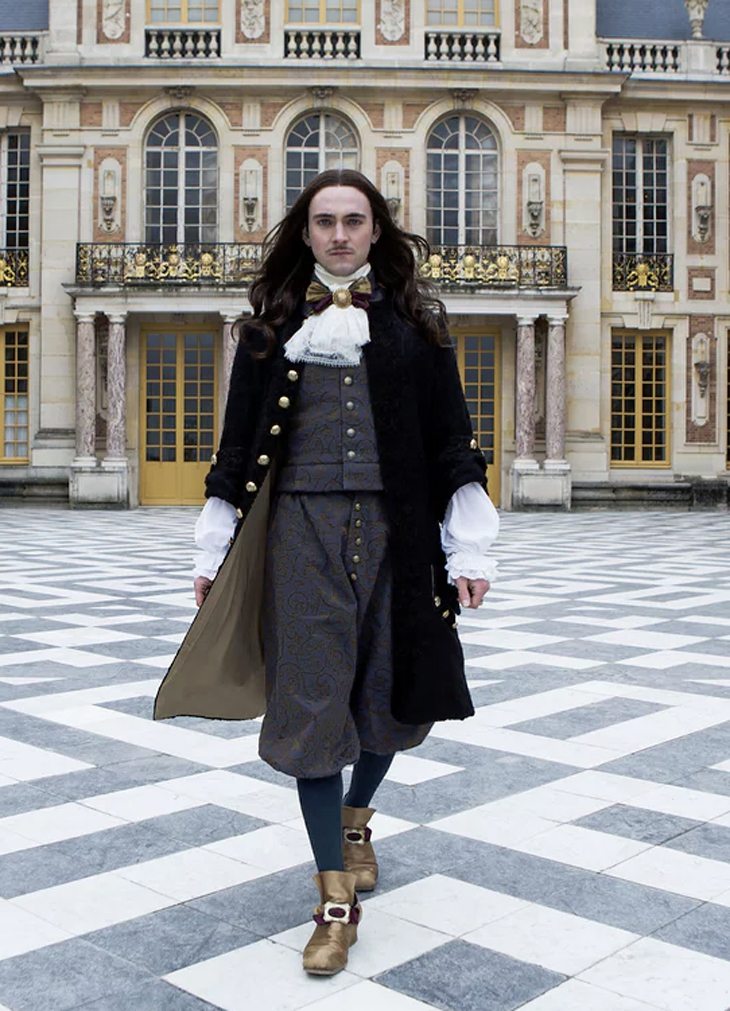 |
| The Sun King played by George Blagdon |
| Philippe I, Duc de Orléans, Louis XIV's brother, played by Alexander Vlahos |
brother Monsieur, Philippe I, Duke de Orléans, Alexander Vlahos, who played Mordred in Merlin, make a great job of their roles, because they know better than to be sérieux. It's only the astounding gowns and suits -- and scenery -- that anyone takes seriously. Beats the hella outta the earnest endless emo of Reign, while managing to stay far closer to history than that travesty. (There really was an epidemic of poisonings at Louis's Versailles, and spells cast, etc -- or at least so the court was convinced, and people were executed for it.)
Though again, with contemporary historic costume drama set in courts and filled with royals, the protocols are much truncated and people are much too familiar with these figures for historical reality. Not even the maîtresse-en-titre would be allowed to take the lead when the wife of a royal Duke arrives in a room -- especially in the Sun King's Versailles. Montespan would have been required to rise and curtsy -- the Princess and Duchess does not sit in a corner and wait to be noticed by her. But all those endless heralding, bowings and curtsies and other formalities would eat an entire episode's time if done accurately, and following the forms correctly allow for less delicious cattiness.
 |
| Princess Palantine, Wife to Monsieur, Philippe I |
This season was added the character of the German Princess Palantine, Elizabeth Charlotte, second wife of Monseiur -- and she's fabulous. Happy, healthy, hearty, smart, pretty -- not scrawny -- sensible, she rapidly became my favorite lady, no matter what the court ladies may have thought.
She wasn't this pleasant to other people in real life, however. In her real life, haughty and filled with self-importance, and quite homely, she took to having heralds preceding her and following her, announcing her presence where ever she went -- in other words she was as much a theatrical raging queen as Philippe I, her husband. Which, from this vantage point in time I find hilarious rather than the disgusting class bs that it was, and which helped bring in the Era of Revolutions
Amusing it is, this series set in Louis XIV's France, but produced by Brits and played by Brit actors. They are all talented professionals, who do a praiseworthy job of not tripping on their lines, robes or high heels or the writers' fooling with the manners of the period. There are many familiar faces from many other series, including The Tudors and Got.
The film locations included many of France's most fabulous palaces and châteaux, not least including Versailles itself.
The horses' beauty, elegance and grace are more than equal to that of the inhabitants of the palace.
There will be at least a third season, which makes me happy.
Season 1 and 2 stream on Netflix.


No comments:
Post a Comment